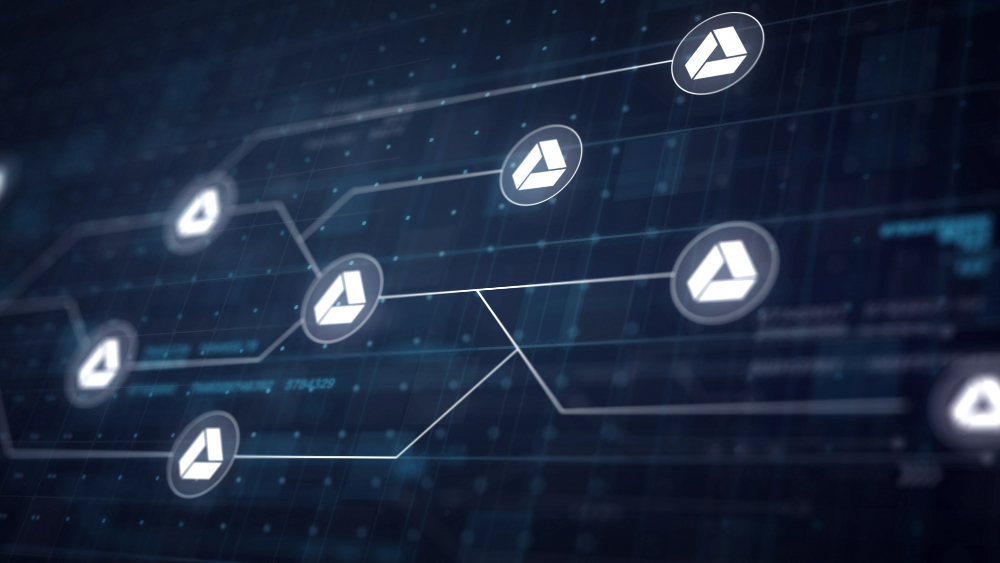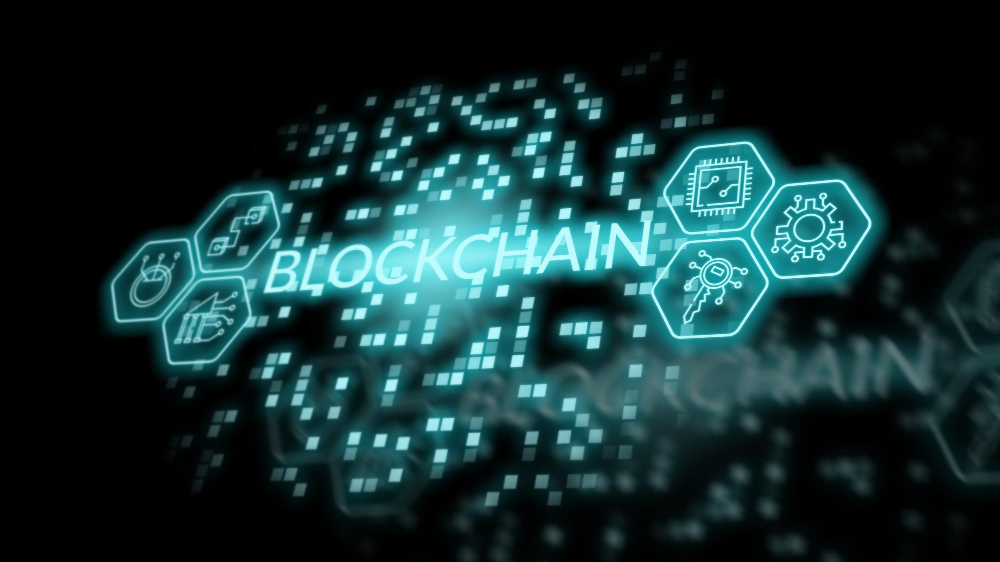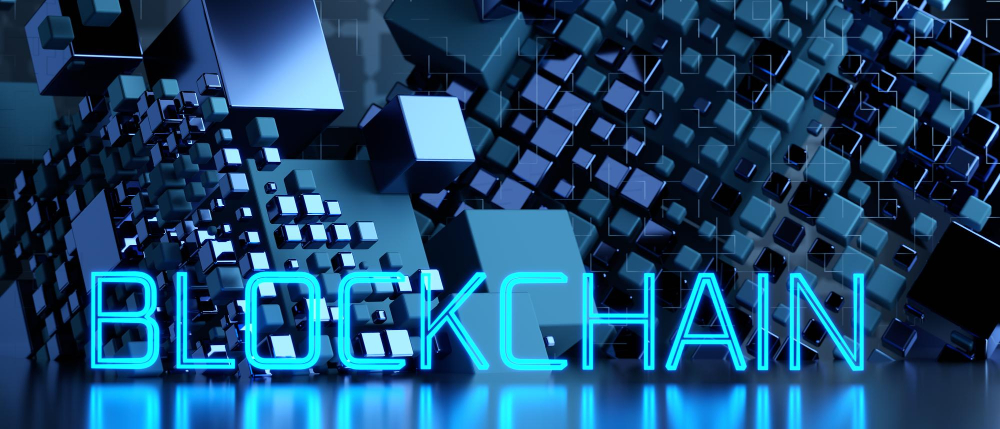Social media plays a significant role in our lives. We interact with each other, share opinions, launch campaigns, and search for job opportunities on social networks. But media giants are increasingly controlling and censoring what we see on their platforms. What’s more, they make a fortune selling our personal information to advertisers.
For those fed up with the take-it-or-leave-it policies of traditional social media platforms and other big tech companies, blockchain-based social media platforms may be an attractive alternative. Unlike these centralized social networks, decentralized platforms put control of user data in the hands of the users themselves.
In this article, we’ll learn what blockchain social media is, how it differs from traditional social networks, the key features of decentralized social media platforms, and some blockchain-based social networks to check out.
Blockchain social media are decentralized networking platforms built with the help of blockchain protocols or platforms that support the development of smart contracts and apps. Ethereum, Stellar, and Steem are the most popular blockchain protocols that enable the development of social media dApps.
As blockchain social media platforms are based on a distributed ledger system, there is no central authority that holds all the data. Instead, the data is stored in a decentralized way across multiple nodes in the network. Therefore, the greater the number of users, the greater the data capacity of the network.
Decentralized social media platforms have the same features as traditional social networks, such as content sharing, blogging, and social networking. However, they enable end-to-end encryption for each interaction.
In addition, the majority of blockchain-based platforms support several features common to blockchain ecosystems, such as crowdfunding, in-platform transactions, and user rewards. Hence, blockchain-based social networks allow both content creators and users to generate revenue.
Decentralized social networks include all blockchain-based social media networks. Thus, there is no single entity or government that controls the data. The data can only be provided at the request of the user. User data is stored on multiple servers, each with its own level of protection.
Any company’s servers run a centralized social network. Now, with decentralization, data can be stored anywhere in the world, providing greater transparency and security and empowering users.
Decentralized strategies allow users to control what they can say and how it works. For example, a social network can define a set of acceptable terms for users, while no company is responsible for policing site behavior. In a decentralized social network, however, users can do that.
A social graph is a social network model that maps everyone on a platform and how they are connected. The model is used by both centralized and decentralized social media platforms to enable their users to engage with each other.
Decentralized social media platforms run on public blockchains, so anyone in the world can access the back end, run a node, build an app, and curate a feed.

Centralized and decentralized social media platforms have some differences. Let’s take a closer look.
Ownership and control
The most obvious difference is that decentralized social media platforms are not owned or controlled by a single entity. Instead, they are built on blockchain, a decentralized technology, and operate on peer-to-peer networks. Rather than being stored on a central server, P2P networks are distributed across many different devices called nodes.
Therefore, the decentralized structure makes it much more difficult for social media networks to be censored or even shut down because there is no central authority.
User privacy and security
Decentralized social media platforms tend to focus on user privacy and security. As there is no single authority that controls them, user data is less likely to be accessed and tampered with. Decentralized social networks typically use encryption to protect user data, giving users more control over their data.
Business model
Decentralized social media platforms don’t rely on advertising revenue or selling user data. Instead, many of them use tokens or other forms of cryptocurrency to monetize their platforms, giving their creators new ways to monetize their content.
To understand the importance of blockchain-powered social networks, let’s take a look at the drawbacks of traditional, centralized social media platforms.
First, any centralized service is easy to hack. Second, in existing social media, advertisers are the customers, while users are the products. Therefore, giant platforms like Facebook generate revenue by selling users’ personal information to advertisers or targeted marketing services. Finally, social media networks are used to spread propaganda and make people think a certain way about a social issue.
Blockchain-based solutions typically strive to reduce the numerous drawbacks associated with centralized systems. Now, let’s explore the benefits of blockchain social media. They are a check on user commodification, the privacy and freedom of expression, and the scope for crowdfunding.

A check on user commodification
Today, data is one of the most profitable assets. Therefore, people who control data can control the behavior, mind, and other aspects of data producers. In addition, centralized social media platforms are a rich source of personal data.
It’s no secret that our likes on Facebook and Instagram use user data to enable targeted advertising for their clients. So when you browse for something on Amazon, the ad for that product appears on Facebook or Instagram.
Thanks to their end-to-end encryption, peer-to-peer network, and the absence of third parties, blockchain-based social media platforms eliminate such threats of user commodification. In addition, users have complete control over their data through the use of private and public keys.
With the private key, users can initiate transactions, the details of which are stored in blocks of data on a blockchain. These blocks are added to the chain only after verification by the majority consensus of other network members. As a result, the data is only accessible to the intended recipient.
The information stored in these blocks takes the form of a cryptographic hash. Hashing is a one-way algorithm, meaning that it is impossible to decrypt the hash and get the original information. Each hash is unique, and each piece of unique information produces a different hash. In addition, even a small change in the information will result in a different hash. Therefore, the data stored on a blockchain is immutable.
Privacy and freedom of expression
Every interaction on traditional social media platforms, including private messages, is accessible to their moderators. Among other things, this jeopardizes users’ privacy.
What’s more, content posted on social media is often used for political purposes and to silence opposition, which is a significant obstacle to the realization of democratic ideals of freedom of speech and expression.
With decentralized consensus mechanisms, blockchain social media networks ensure greater privacy and help users realize their right to express themselves freely.
However, this lack of regulation may pose new threats. If blockchain-based social media platforms become as popular as the existing centralized giants, such issues will have to be addressed over time.
Scope for crowdfunding
Blockchain-based social media also have material rewards to offer. The majority of decentralized social networks reward their users, or nodes, for posting on their platforms. As in blockchain ecosystems, these rewards are paid in the form of the platform’s native cryptocurrency.
In addition, these social media networks allow users to host effective crowdfunding campaigns through processes similar to token sales. Furthermore, such platforms facilitate peer-to-peer financial transactions using native cryptocurrencies.

While decentralized social networks solve many of the problems of traditional platforms, they also have their own challenges. Let’s explore the strengths and weaknesses of decentralized social media platforms.

All.me is a multifunctional blockchain platform that has both social media and regular crypto exchange features. The platform has one of the fastest blockchain communities, with millions of active users exchanging cryptocurrencies, gossiping, and suggesting ideas to improve the whole community. The platform doesn’t charge for signing up.
All.me has a Facebook-like interface so users can easily view posts, ads, and content and earn reward points. These points can also be purchased. The platform allows users to add crypto wallets to their accounts and make transactions instantly.
All.me also features meMarket, a decentralized marketplace where users can sell their products on their profile or buy items from their newsfeed in exchange for meToken, the platform’s native cryptocurrency.
D.Tube is a decentralized video-sharing platform built on the HIVE Blockchain. It has many similarities to YouTube and other traditional video hosting platforms, but the difference is that D.Tube uses DTUBE tokens to reward users for creating videos on any topic.
In addition, the platform doesn’t recommend content to users but lets the community speak. If other users like and vote for your video, it will go viral and become a trending video.

Indorse is an Ethereum-based social media network similar to LinkedIn. The platform rewards users who share and prove their skills on it. Indorse uses a decentralized verification process to approve skills. The platform also has IND tokens to incentivize network activity.
What’s more, advertisers can buy IND on an exchange and purchase space for their ads. Indorse shares a portion of these IND tokens with members who create content.
Hackernoon is a blog hosting platform. Writing on Hackernoon will expand your network and give you a good reputation in the Web3 space, as your articles will be published on a well-established platform. What’s more, Hackernoon doesn’t take any copyright on your content, so you can share it anywhere you want.
Although Hackernoon is not built on a blockchain, the platform allows users to link a Coil wallet to their blogs. Coil Network is a revenue-sharing platform that collects a monthly fee from users and redistributes the profits to all the supporting sites. On average, authors can earn $0.36 for every hour a user spends on their content. Therefore, hosting a blog on Hackernoon can bring you additional benefits.
Minds is a decentralized social media platform designed to be a zero-censorship alternative to traditional platforms like Facebook or Twitter. Built on the Ethereum network, the platform aims to provide users with data control, privacy, and full sovereignty over how their content is shared.
Users can earn MINDS tokens by performing basic social networking activities such as posting, liking, commenting, and sharing content. You earn certain points for being active on the network. Then the platform aggregates these points and gives you a daily token equal to the number of tokens distributed by the forum each day divided by the percentage of points you contributed. You can buy or sell MINDS tokens on crypto exchanges.
Pixelfed is a decentralized social media platform that aims to be an alternative to Instagram. However, Pixelfed is designed with user privacy in mind: the platform is open-source and ad-free, with no selective algorithm dictating what content is shown to users.
Pixelfed includes image editing software and various filters. The platform also has a direct messaging feature and allows users to host their own servers. In general, Pixelfed gives users more control and security.
Sapien is a social news platform built on the Ethereum blockchain. The platform allows users to browse public and private news, customize their news feeds, and chat with each other with end-to-end encryption. Sapien ensures data sovereignty, economic empowerment, and meaningful conversations.
The platform is a democratic social network with a crypto token reward system. The SPN token is the main currency that enables user rewards and is required for P2P communication.
Signal is an end-to-end encrypted messaging app that allows users to send texts with enhanced security. The app is an alternative to existing Facebook Messenger and WhatsApp, with tens of millions of monthly active users. Signal can be downloaded and installed on both Android and iOS devices.
Steemit is an incentive-based, peer-to-peer social media network built on the Steem blockchain. In terms of functionality, the platform has elements similar to Facebook and Reddit.
Steemit rewards content creators with cryptocurrency. To earn points that can be exchanged for crypto, users must publish or vote for content, activate the crypto social network, or purchase STEEM tokens for BTC or ETH on crypto exchanges. The platform verifies users before approving their registration.

SocialX is an open-source, community-driven social media platform that allows users to host blogs and publish photos and videos. Although it is very similar to traditional social media like Facebook or Instagram, there are significant differences. SocialX is a decentralized platform where users can generate revenue through SOCX token rewards. These tokens can be traded on crypto exchanges.
Users earn reward points for everything they do on the platform, such as commenting, liking, or sharing content. One of the most notable features of SocialX is Superlikes. When you send or receive Superlikes, the social network rewards you with SOCX tokens from its reward pool. In addition, you can generate revenue by selling your best posts to interested parties.
Sola is a decentralized social network that uses a combination of artificial intelligence and blockchain to help users’ content go viral. The platform’s revenue model includes advertising, user payments, and partnerships that are later shared with its users. In addition, the platform has its own SOL token.
Sola has a web application and mobile apps for iOS and Android. It also has an API that developers can use to build custom applications around Sola.
Vevue is a blockchain-based social media platform that rewards users for their creativity. The platform rewards users who produce engaging content with VUE tokens.
Vevue presents itself as a platform that doesn’t support repetitive or fake content. The platform uses the transparency and accessibility of blockchain technology to create the future of social media, where every user is paid for making authentic videos.

Now that you know the basics, you might be ready to find out how to build a social network on blockchain. Generally speaking, you need a blockchain protocol such as Ethereum, Flow, or Hyperledger to create a social network. Broadly speaking, there are three approaches to building a blockchain-based social network: developing from scratch, using an existing platform, and using an app builder. Let’s take a closer look.
Developing from scratch
If you need to create a unique decentralized social network, developing from scratch is the perfect solution for you. Although it takes a lot of effort, time, and money, it will certainly pay off as your platform will stand out from the competition.
For example, you can create unique features, user capabilities, and UI designs for your platform. In addition, you get complete control and ownership of the final product.
Using an existing blockchain platform
Existing platforms such as Ethereum, EON, and Sola allow you to develop dApps or smart contracts directly. Thanks to these platforms, you can save a lot of time and development costs. However, the final product is likely to have limited functionality and features. You’ll also need to deeply understand the specific blockchain you’re using.
Generally speaking, this approach allows you to integrate the newly created social network into the platform’s ecosystem and give your users access to a variety of third-party applications.
Using a blockchain social media app builder
White labels and clones typically offer ready-made social networks in just a few days, starting at $100. However, you should only use this approach if the final product has little or no competition and you don’t offer unique features.
Using an app builder is the quickest solution at a minimal cost. Another important advantage is that it doesn’t require any programming skills. However, this approach may bring you some issues related to copyright.
A basic blockchain-based social networking solution can cost you several thousand dollars, while a complete solution with complex features and unique designs can cost hundreds of thousands of dollars.
Therefore, you need to understand that a complete solution is much more beneficial in terms of competition because it is tailored to your specific needs. This is why the complete solution may prove to be more reliable than anything off-the-shelf.

Although today’s decentralized social media platforms may not have the same network effects as traditional social media we’re used to, blockchain-based social platforms offer new functions and features to interact with the technology and other users.
Built-in monetization capabilities, censorship resistance, and improved privacy are the most important factors that may increase the popularity of blockchain social media. Blockchain protocols are borderless and permissionless, so they may contribute to the development of a more collaborative, engaged, networked, and open global social media environment.
With many experts predicting that cryptocurrencies and NFTs are here to stay, investing time and money in mastering blockchain technology can be an amazing asset for advancing your career.
Without a doubt, decentralized social media platforms are one of the most outstanding applications of blockchain technology as of now. Blockchain-based social networks can shift the balance of fairness and privacy in favor of users and content creators. It also has the potential to revolutionize the social media sector and contribute to a new era of digital free speech.
However, decentralized social media must first achieve widespread adoption. To do so, it must find an elusive answer to content filtering, increase scalability, and solve environmental issues. After that, blockchain-based social networks will have more opportunities to become the future of Web3 interaction.
If you still have any questions or ideas you would like to turn into reality, feel free to contact our blockchain developers.